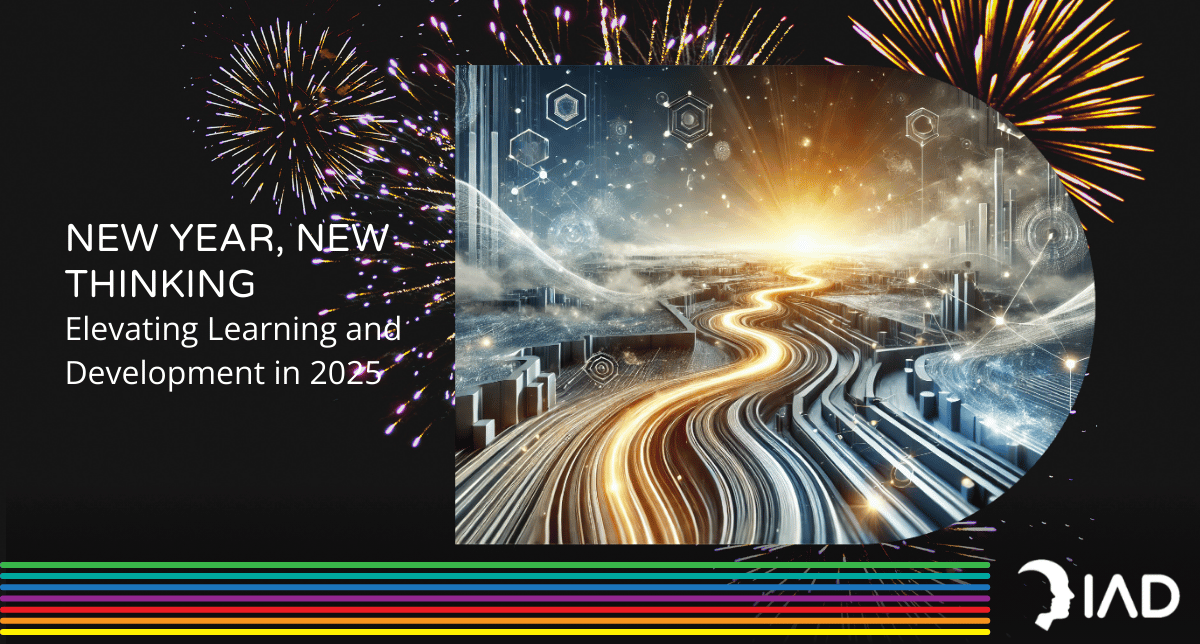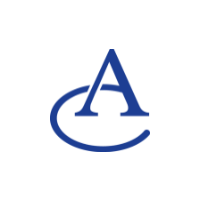New Year, New Thinking: Elevating L&D in 2025
Why 2025 is the Year to Transform Learning Strategies with Dynamic Intelligence

The start of a new year is more than a date on the calendar—it’s a chance to reset, reimagine, and embrace new possibilities. It marks a powerful opportunity to rethink traditional strategies, welcome innovation, and set the stage for lasting transformation. Much like a resolution to improve personal habits, a fresh approach to L&D can yield measurable results, driving engagement, adaptability, and growth across the organisation.
In 2025, the stakes have never been higher. Volatility, uncertainty, complexity, and ambiguity (VUCA) is not a passing trend but a permanent reality. Leaders must navigate this complexity while engaging employees, retaining talent, and fostering resilience in the face of change. So for many, the question is:
How can we meet these challenges head-on?
The answer lies in how we think about thinking. The Dynamic Intelligence Development System™ (DIDS™) introduces a revolutionary framework that enhances cognitive complexity, equipping individuals and teams to thrive amidst uncertainty. Vertical development—building the capacity for more nuanced, adaptive thinking—provides the foundation for success in today’s dynamic world.
2025 is the year to elevate your approach, starting with the foundations of Dynamic Intelligence.
The New Year Opportunity
Every new year brings the promise of renewal—a chance to take stock, reflect, and course-correct. For organisations, this is a crucial time to assess the effectiveness of their learning and development strategies. Traditional approaches to L&D, which often focus on skill-building or compliance training, can no longer keep pace with the demands of today’s world. The complexity of modern work requires something deeper: a way to prepare people not just for what they need to do, but for how they need to think.
The concept of VUCA has become a defining characteristic of the 21st-century workplace. From shifting market dynamics to accelerating technological change, organisations must now navigate environments where the old rules no longer apply. In this context, rigid, prescriptive learning models are not enough. The key lies in cultivating adaptability, resilience, and cognitive flexibility across all levels of the organisation.
This is where Dynamic Intelligence comes in. At the root of vertical development, it goes beyond traditional training by equipping individuals and teams with the cognitive capacity to tackle uncertainty and solve problems in innovative ways. By prioritising the development of thinking complexity, organisations can move beyond reactive strategies and become proactive in shaping their futures.
Dynamic Intelligence and Vertical Development
Traditional learning approaches often focus on domain-specific knowledge or technical skills, but they fall short when individuals face situations that require nuanced judgment, emotional resilience, or the ability to integrate multiple perspectives. This is where Dynamic Intelligence makes the difference.
Dynamic Intelligence is the capacity to think differently depending on the context, enabling individuals to act intentionally rather than react instinctively. It operates through four core elements: Intention, Awareness, Choice, and Response. Together, these elements help individuals make better decisions, navigate uncertainty, and collaborate effectively in the face of complexity.
The key to developing Dynamic Intelligence lies in vertical development. Unlike horizontal development, which focuses on adding more skills to an individual’s toolkit, vertical development enhances their ability to approach problems with greater cognitive complexity. It’s like upgrading from a basic map to a GPS system that dynamically recalibrates based on real-time conditions—equipping people not just with answers, but with the ability to frame and solve entirely new questions.
The Dynamic Intelligence Development System™ (DIDS™) is a revolutionary framework designed to embed these principles into organisations. Through targeted coaching, workshops, and assessments, DIDS™ enables leaders and teams to elevate their thinking and unlock new levels of performance. For example, a leader with strong Dynamic Intelligence doesn’t just manage tasks—they inspire their teams to adapt seamlessly to evolving goals while maintaining clarity and purpose.
Vertical development, as facilitated by DIDS™, isn’t just a theoretical concept. It’s a practical and measurable way to equip organisations with the tools they need to thrive in 2025 and beyond.
Implementing Dynamic Intelligence
Understanding the importance of Dynamic Intelligence is just the first step. The real challenge lies in implementing it effectively within your organisation. Here are three things you can do to help you begin embedding the principles of Dynamic Intelligence into your L&D strategy:
1. Evaluate Your Current L&D Approach and Cognitive Needs
Organisations often focus on horizontal development, adding new skills or knowledge, but fail to address the cognitive complexity required for adaptability. Start by assessing how well your L&D programs align with the demands of your workplace and prepare employees to think flexibly and adaptively.
Conduct a strategic audit of your L&D programs, looking for gaps where training fails to address complex, unpredictable challenges. Pair this with cognitive profiling assessments to understand whether employees’ current thinking styles are aligned with their roles and the organisation’s needs.
This combined analysis ensures your L&D strategy is focused not just on what people learn, but on how they think, setting the stage for more impactful development efforts.
2. Embed Vertical Development in Leadership Programs
Leaders set the tone for adaptability and innovation across the organisation. Enhancing their cognitive complexity ensures they can navigate ambiguity and inspire their teams to follow suit.
Introduce workshops and coaching sessions specifically designed to foster Dynamic Intelligence in leadership. These programs should focus on increasing self-awareness, reducing Cognitive Intention biases, and enhancing decision-making under pressure.
When leaders model adaptive thinking, they create a ripple effect, encouraging teams to approach challenges with the same level of intentionality and clarity.
3. Foster a Culture of Cognitive Growth Across Teams
Dynamic Intelligence isn’t just for individuals—it’s a collective capability. Teams that align their thinking styles and leverage cognitive diversity are better equipped to collaborate and innovate.
Incorporate team-based exercises that promote awareness of different Thinking Styles and encourage intentional communication. Consider adopting group coaching initiatives to align developmental goals across teams.
A culture of cognitive growth not only improves problem-solving but also strengthens engagement and retention, as employees feel supported in their personal and professional development.
By assessing gaps, empowering leaders, and fostering team growth, you can set your organisation on a path to greater resilience, adaptability, and innovation.
Is 2025 your year to move beyond conventional L&D strategies and embrace the transformative power of Dynamic Intelligence?
Why DIDS™ is the Right Framework for 2025
Dynamic Intelligence isn’t just a theoretical concept—it’s a practical framework for thriving in complexity. The Dynamic Intelligence Development System™ (DIDS™) is specifically designed to help organisations address the challenges of the VUCA environment by equipping their people with the tools to think more adaptively and act more intentionally.
Traditional learning strategies often fall short because they focus on what employees need to know, rather than how they need to think. DIDS™ bridges this gap by fostering vertical development, increasing cognitive complexity, and enabling leaders and teams to approach challenges with clarity and confidence.
By focusing on the development of Dynamic Intelligence, organisations can strengthen resilience, improve decision-making, and enhance collaboration. The principles of DIDS™ are grounded in research on cognitive complexity and adaptive leadership, which demonstrate that enhancing the way people think—not just what they know—leads to better performance and engagement across the board.
DIDS™ isn’t a one-size-fits-all solution—it’s a tailored approach that meets organisations where they are and takes them to where they need to be. By embedding Dynamic Intelligence into your L&D strategy, you can set the foundation for success in 2025 and beyond.
The time to act is now.
As the new year begins, the opportunity to rethink and elevate your organisation’s approach to learning and development is here. In a world defined by volatility, uncertainty, complexity, and ambiguity, it’s clear that traditional methods are no longer enough. Success in 2025 will depend on building stronger foundations—foundations rooted in the transformative power of Dynamic Intelligence.
The Dynamic Intelligence Development System™ (DIDS™) provides a proven framework to enhance cognitive complexity, enabling your leaders and teams to navigate challenges, seize opportunities, and thrive in a rapidly changing environment. By prioritising vertical development and fostering adaptability, you can create a resilient, forward-thinking organisation ready to meet the demands of the future.
Start 2025 on the right foot.
Book a call with the IAD to explore how DIDS™ can help your organisation thrive.
Alternatively, why not download our comprehensive brochure - our New Year gift to you!
All Rights Reserved | Adult Development (UK) Ltd




